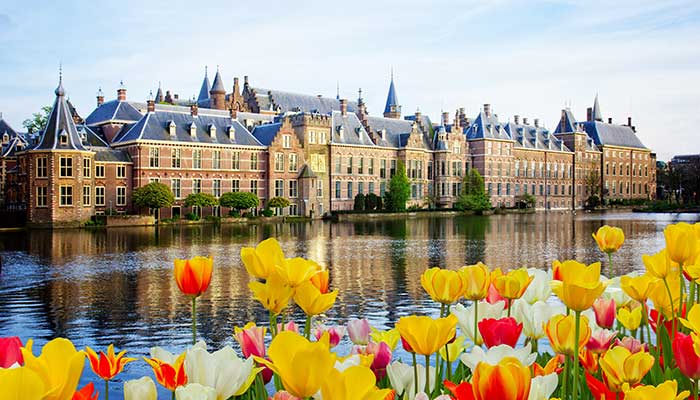Britain’s vote to exit the European Union has created uncertainty across the board.
It is still not known how and whether Brexit will significantly impact the UK’s economy and jobs market.
Europeans living in the UK are unsure if they’ll be able to stay after March next year and the possibility of an overhaul to the UK tax system also looms.
Not-for-profit organisations are no exception to the many sectors worried about the potential impacts of leaving the European bloc.
Third sector agencies are concerned, not least, that they could risk losing funding from the EU in a post-Brexit world.
It is uncertain if NGOs in the UK will continue to get EU funding.
NGOs based in the UK could lose out on up to €357m every year from the EU, according to 2016 figures from Bond, a UK network for organisations working in international development, if there was a ‘hard Brexit’.

Bond tells PF International the EU Commission’s Humanitarian Aid and Civil Protection department has confirmed to it that UK-based organisations working on humanitarian issues may not be eligible to receive EU funding post Brexit.
But this might not be so if the ECHO receives assurances from another donor, such as the UK Department for International Development, it will stump up for programming costs post Brexit, the Commission has told Bond.
This uncertainty has led to worry and five NGO taking matters into own hands, by either upping sticks and relocated from the UK, or opening additional offices in, another European city. That city is The Hague.
A further 10 to 15 NGOs have shown interest in relocating to the western Netherlands city, the Department of International Affairs of The Hague has told PF International.
But why is this? Why is the place known as the ‘international city of peace and justice’ the location of choice, over other European cities?
NGOs have told PF International the move is because The Hague is seen as a ‘safe hub’, where they will be able to keep doing their work and maintain funding.
The Hague, they say, makes it easy for third sector organisations to set up offices there and nurtures an environment where they feel supported, and where their funding streams will be protected.
The city, already home to more than 200 international organisations and NGOs, is dubbed the international city for peace and justice, as the home to the United Nation’s International Court of Justice [pictured above right] and the International Criminal Court, as well as a number of peace organisations.
Euclid, a European network of civil societies and social enterprises, was founded and based in London, is 70% funded by EU programmes, will be moving its whole operation to The Hague by the summer of 2019.
“The Hague is interesting because they call themselves the international city of peace and justice and it has a big international profile.”
Stephen Barnett, Euclid
Its chief executive Stephen Barnett tells PF International: “The Hague is interesting because they call themselves the international city of peace and justice and it has a big international profile.
“But actually, they are [also] quite good at promoting social enterprises locally.”
His organisation’s move is a precautionary one to protect itself against a ‘hard Brexit’, Barnett explains.
“The referendum outcome clearly puts our funding at threat and raises questions for our partners in the rest of Europe about our base being in the UK,” he says.
It was the UK prime minister Theresa May’s speech at the Tory conference last year that caused Euclid to seriously consider relocating.
Although, May said at the conference last October that she was hoping for a ‘friendly and constructive’ relationship with the EU post Brexit, NGOs felt the tone of the speech suggested they would not be able to carry on ‘as normal’ in London after March next year.
“The tone set by the government is that we are heading towards a ‘hard Brexit’,” Barnett says.
“And that set the tone for us, and because our EU funding is so significant we just had to get on with it.”
Redress, an NGO helping torture survivors, founded in the UK set up an office in the Hague in 2016.
Although, this was more to do with having offices near to the Court of Justice and the International Criminal Court, the organisation believes Brexit will impact the way it works, and is looking at its options for the future.
Redress director Rupert Skilbeck explains: “We are waiting to see what happens and have just over a year to get everything organised. We are keenly aware that Brexit could have a massive impact on the way we operate.”
The NGO is hoping after Brexit it will still be able to work across borders and employ people globally, Skilbeck adds.
Skilbeck says The Hague government was extremely helpful in setting up its office in the city and that there is “an extremely attractive funding climate there”.
Many of the third sector organisations say they looked at a range of cities before deciding on The Hague, but one of the attractions of the city, they explain to PF International, is that they are open to innovation in the sector.

Debbie Ball, head of fundraising, programme design and assessment at International Alert [pictured right], a peacebuilding NGO that receives EU funding, says: “We felt there was a lot of value added in being in The Hague.
“There’s a lot of innovation in the Dutch civil society that you don’t really see elsewhere. So it’s quite an exciting space to be in.”
International Alert has set up a new European headquarters in The Hague, while keeping its London office open.
It receives between a third and a fourth of its funding from the EU and some of its programmes in certain countries are only funded by the bloc.
Ball adds: “Because of Brexit we will need to have a European base, outside the UK. As the EU is one of our most significant donors it is important we are able to keep access to the funding."
As other NGOs, International Alert was also attracted by the city’s ‘peace and justice’ draw and because “there’s a lot of other partners that we can work with there”.
And it’s not just the NGOs that are happy with the move – the feeling is mutual. The government in The Hague is pleased to have them.
A spokesperson for the Department of International Affairs of The Hague told PF International: “This international sector is very interesting for this city, economically, and it strengthens our image and international community.
“More organisations, for instance because of the Brexit, [in our city] would offer more possibilities for the organisations in our city.”
They explain, this could mean NGOs working with organisations in the city on projects, exchanges of data and sharing general amenities.
But there could be downsides to charities moving from the UK to The Hague.
“It would be a great loss if UK-based NGOs are no longer able to contribute their well-recognised expertise to delivery or to policy.”
Tamsyn Barton, chief executive of the Bond network
Tamsyn Barton, chief executive of the Bond network, tells PF International: “It would be a great loss if UK-based NGOs are no longer able to contribute their well-recognised expertise to delivery or to policy.”
She was also concerned the EU and UK could end up “undermining each other’s efforts” in the area of aid with “uncoordinated policy-making and action” post Brexit.
“There is a risk that with the loss of the UK’s focus on poorer countries, EU priorities could shift to where aid is less needed and would be less well used,” Barton adds.
DfID says that the department is ready to discuss with EU partners how to collaborate after the UK leaves the bloc and that any collaboration would come with expectations, including that UK organisations would be eligible to deliver EU programmes.
A European Commission spokesperson tells PF International: “It would be premature to provide details of any possible future agreements.”
But not all not-for-profit organisations are looking to move.
Oxfam, which has in recent years received between £20m and £40m from the EU every year, says it will not be opening any additional offices in the region as they already have nine affiliates that are eligible to apply for funding for Oxfam’s international programmes in the global south.
The British branch of the charity, however, says it is “tracking Brexit negotiations” to ensure it is ready with ways to access EU funding.
And it is not just The Hague that is attractive to NGOs as a place for relocation.
Ball also says that Ireland is attractive to NGOs, because the legislative environment is similar to that of the UK.
Barnett explains: “I can think of at least two other organisations that have set up offices in other European capitals.”
For those who do move, it does mean a big change for the organisations.
Euclid for one will be replacing all its staff as it moves, as current London staff are not able to make the move due to family.
Although Barnett says: “There are opportunities in our relocation, a lot of new relationships in the Netherlands, a chance to change how we work and renew our strategy.”
He adds: “The situation is going to be that all of us will be made redundant and will no longer be able to work for the UK company.
“We will all have the opportunity to relocate, but it’s not possible because of personal ties.”
But, for some organisations the pain is worth the gain.
Skilbeck says: “The trick of [being successful for] any NGO is to maintain the diversity of funding so you can respond to whatever happens”.
And that’s what the organisations moving or eyeing up the move to The Hague are doing – ensuring they can keep up their good work in a post-Brexit climate, whatever that maybe.














